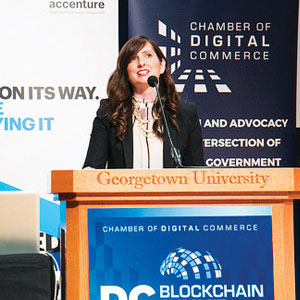THANK YOU FOR SUBSCRIBING
Editor's Pick (1 - 4 of 8)

Blockchain Yesterday, Today, and Tomorrow
Jennifer M. O’Rourke, Deputy Director, Office of Entrepreneurship, Innovation & Technology, Illinois Department of Commerce and Economic Opportunity


Jennifer M. O’Rourke, Deputy Director, Office of Entrepreneurship, Innovation & Technology, Illinois Department of Commerce and Economic Opportunity
See Also:
The blockchain is a quintessential gold standard of record-keeping with multiple participants all agreeing upon the same information
Weekly Brief
I agree We use cookies on this website to enhance your user experience. By clicking any link on this page you are giving your consent for us to set cookies. More info
Read Also













